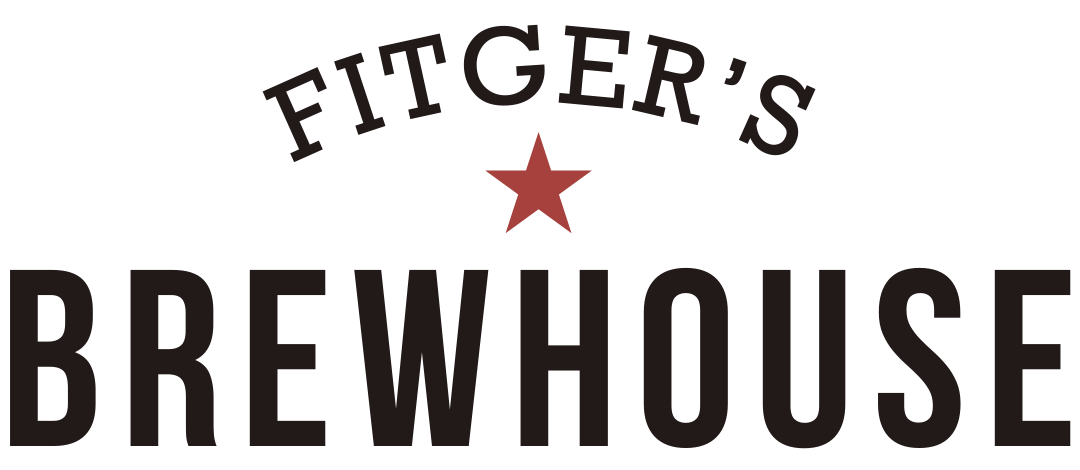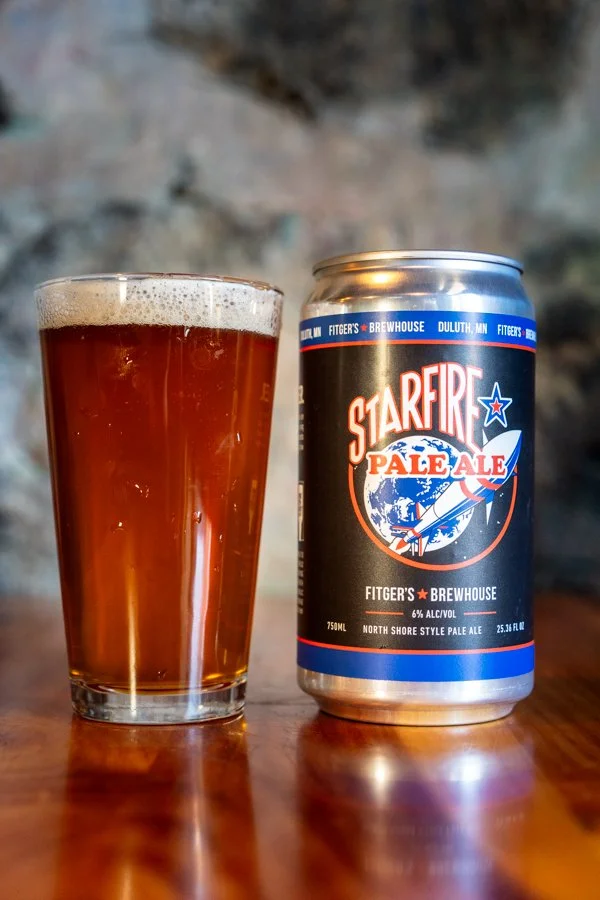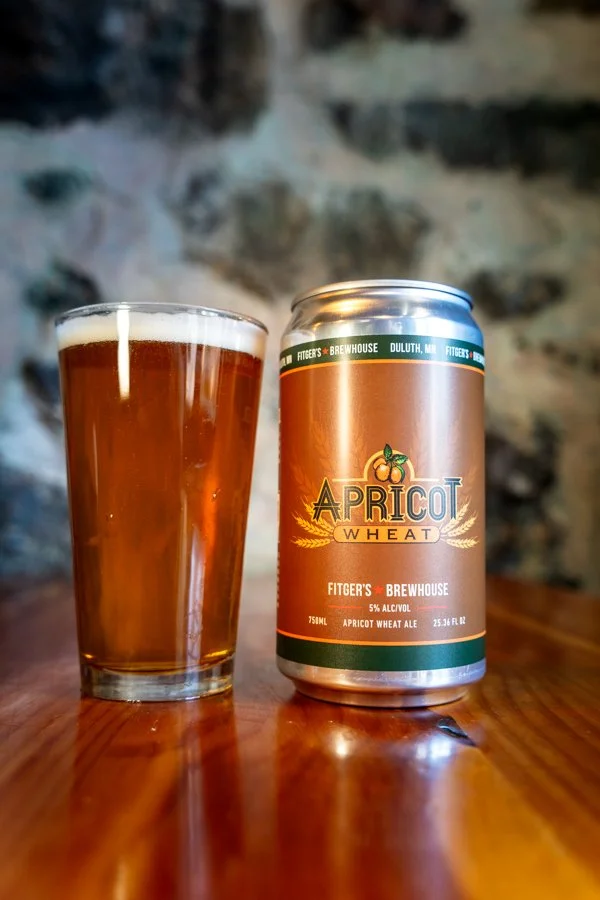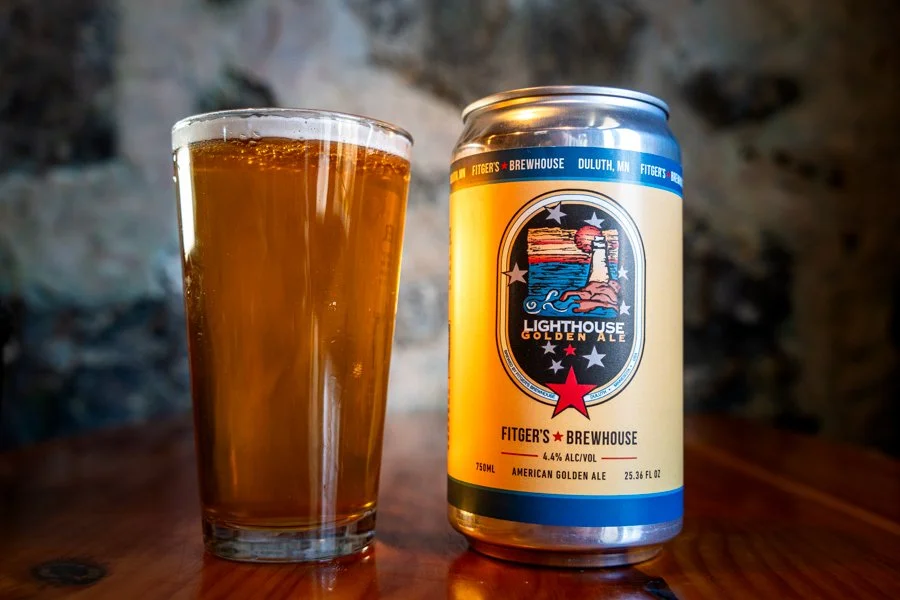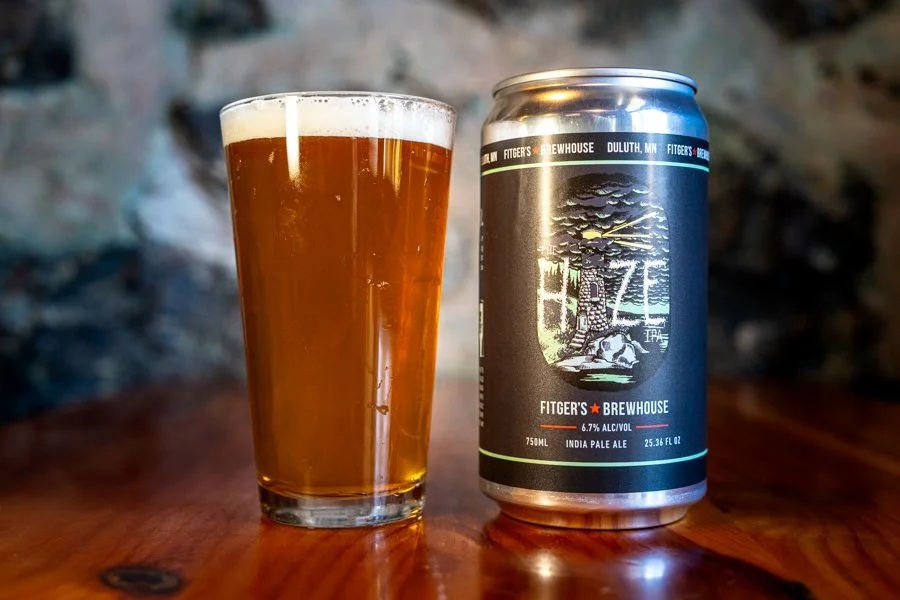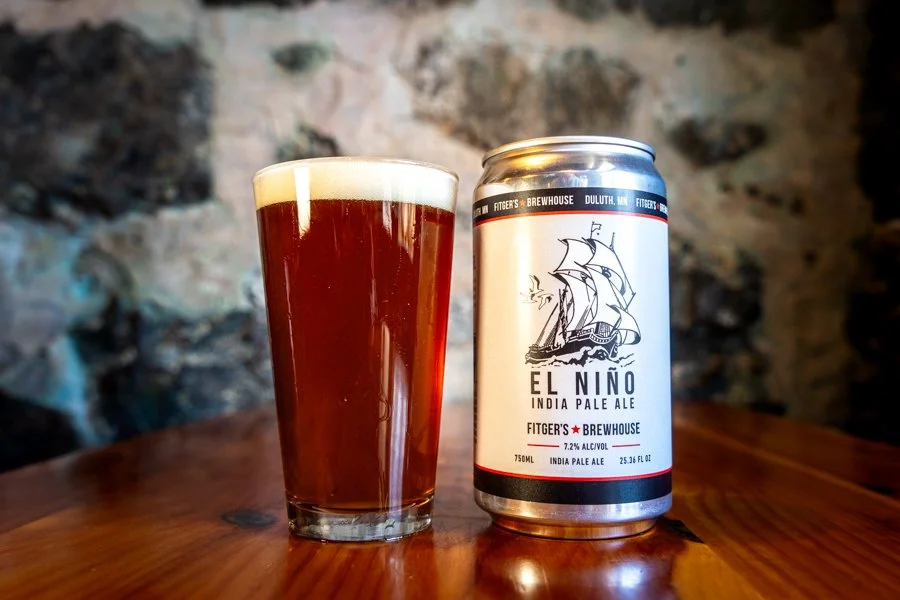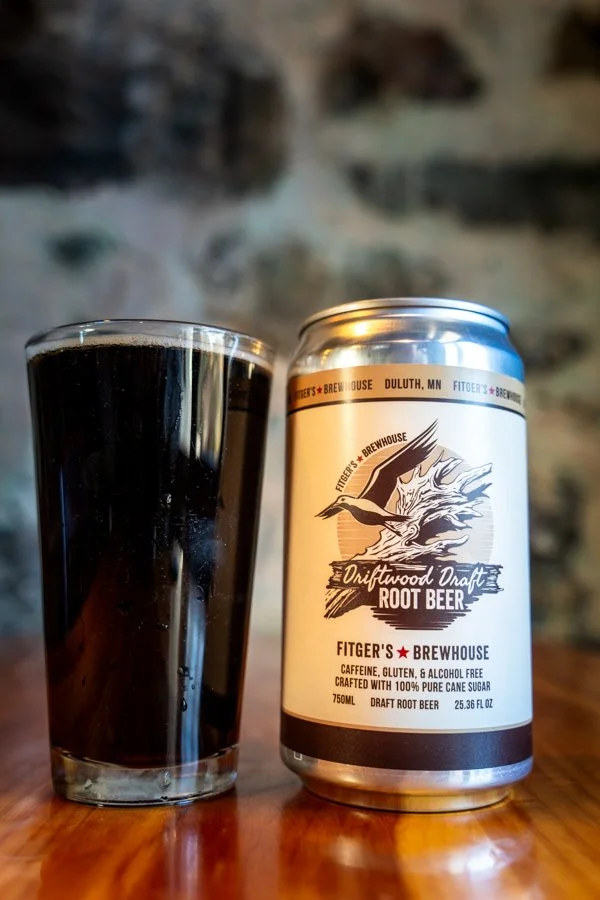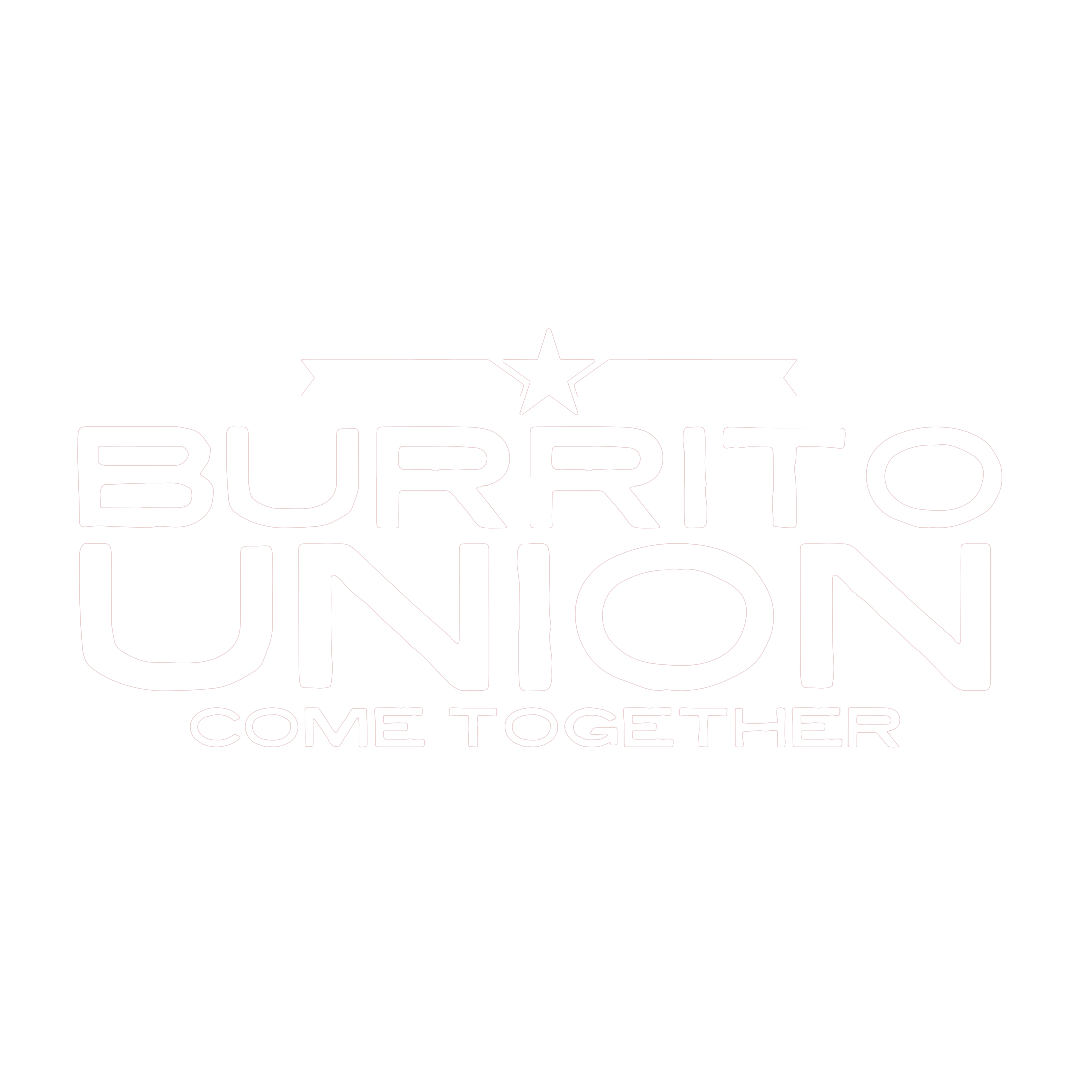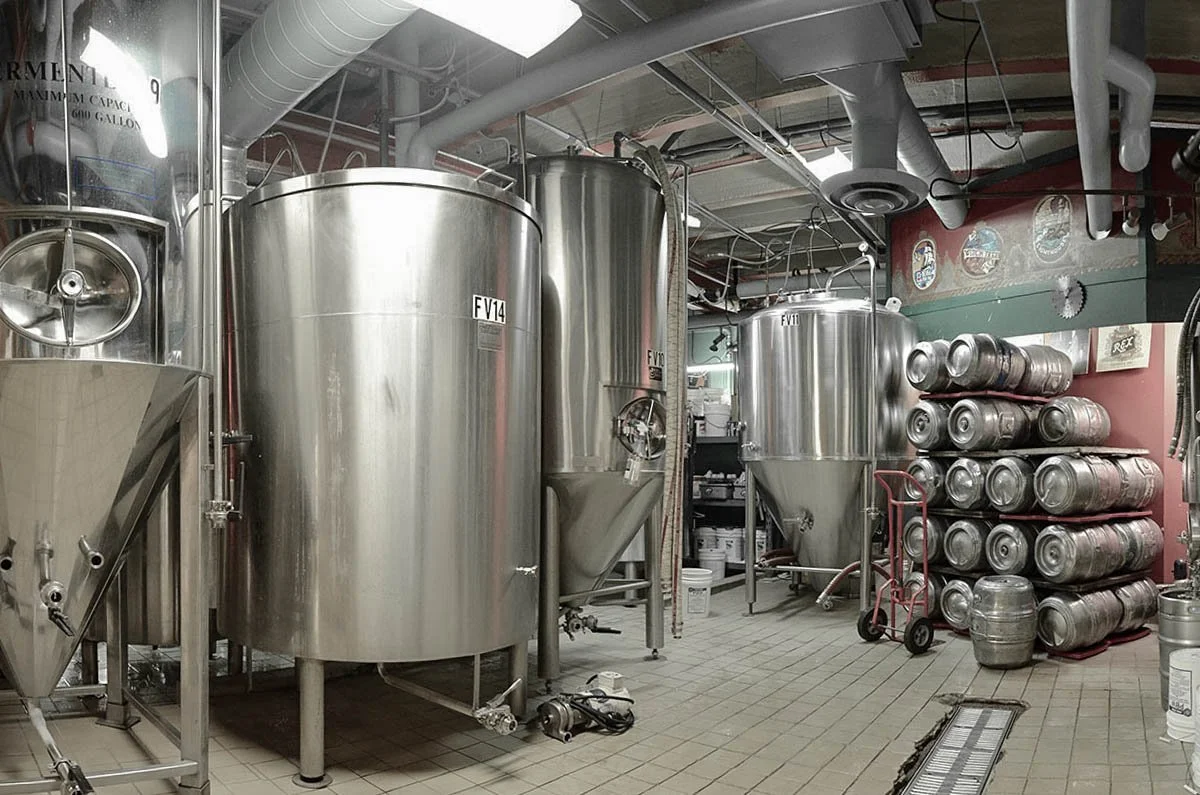
Fitger’s Brewery
Fitger's Brewhouse Brewery and Grille produces over 1,100 barrels of local, award-winning ales and lagers each year from our 10-barrel Duluth, Minnesota brewpub. Our brewery is operated by a small crew of craft culture-loving, badass brewers who all have the passion for using small batch, hand-crafted brewing techniques. Our catalog boasts nearly 200 different recipes of unfiltered ales and lagers brewed from the highest-quality ingredients.
WHAT’S ON TAP AT OUR LOCATIONS
Fitger's Brewhouse Staples

Brewing History at the Historic Fitger’s Complex
-
Years before Duluth microbrews were on anyone's radar, there was Sidney Luce. When the Financial Panic of 1857 decimated the population of Duluth Township, this pioneer had a bold idea to retain those who remained: make sure they had plenty of Duluth beer. He gathered four unemployed young men-including amateur brewer J. Gottlieb Busch-and leased them property near the present Fitger's site along a clear brook that emptied into Lake Superior. Here they built their Duluth brewery and began making beer with water from the stream, which became known as Brewery Creek.
According to Luce himself, the Luce-Busch brewery "was not a pecuniary success." When the Civil War further reduced the population, he shuttered the financially strapped operation and, when the war ended, sold it to Nicholas Decker. Decker kept the brewery alive through Duluth's 1869 boom and after its 1873 bust, but Decker himself died in 1875.
In 1877 things were starting to pick up for Duluth. That's when Michael Fink purchased the brewery from Decker's family, later naming it the Lake Superior Brewing Company. Soon he had accounts with each of Duluth's 18 saloons.
-
In 1881 Fink built a new building along Superior Street between 6th and 7th Avenues West. The next year he found a young man to take over the Duluth brewery: August Fitger, a graduate of Germany's Weihenstephan Brewing School who at 28 became Duluth's first journeyman brewmaster. Within a year Fitger was half-owner of the brewery.
Percy Shelly Anneke, a friend of Fitger's who worked as an auditor for Schlitz Brewing Company, signed on as the brewmaster's partner-though it would take until 1885 before he came through with his end of the financing. By then the brewery, renamed the A. Fitger and Co. Lake Superior Brewery, was producing plenty of Duluth beer.
For the next thirty-five years this brewery flourished, and the single facility Fink built in 1881 became a complex of ten buildings. Half a dozen other small Duluth breweries opened and closed while Fitger's grew, and the brewery even sustained competition from two other successful local operations, Duluth Brewing and Malting and Peoples Brewery. Duluth beer was on the rise.
-
The success of the three major Duluth breweries began drying up when Duluth voted for early Prohibition in 1917, two years before alcohol was banned nationwide. The Duluth craft beer movement looked like it was doomed. Like many breweries around the country, Fitger's stayed alive by manufacturing other products such as candy bars and soda pop.
During the Roaring Twenties the Duluth brewery produced candies such Fitger's Flapper, Fitger's Spark Plug, Fitger's Skookum ("A Bully Good Bar"), and its own Nut Goodie. The bottling house cranked out cases Lovit soda and a non-alcoholic mixer called "Pickwick," which became so popular at Joseph Wisocki's Brewery Saloon he changed the business's name to the Pickwick.
By then John Beerhalter was Fitger's brewmaster. His biggest Prohibition success was Silver Spray, a non-alcoholic drink "with the taste and sparkle of champagne" that was advertised as "the best mixer in the crowd." Indeed, Silver Spray mixed so well with bootleg liquor and homemade hooch it was soon selling in 31 states across the nation. Still, the brewery lost money every year in the 1920s.
-
On April 6, 1933, Fitger's started selling beer again-in fact 19,000 cases left the Duluth brewery just after midnight. Prohibition had been repealed, and Beerhalter and his brewers had gone back to doing what they did best: making Duluth beer. By 1940 they were producing 100,000 barrels a year. Fitger's had become a major regional brewer.
In 1944 Beerhalter purchased the business and it was operated by his family for the next 30 years. But like many other industries after the second world war, brewing fell victim to consolidation. One by one beer giants such as Miller and Anheuser-Busch bought out smaller brands, making it difficult for regional beers like Fitger's to compete. Canning house workers reported for duty for the last time on September 19, 1972; the facility was officially closed at the end of the month, ending 115 years of brewing on Duluth's Lake Superior shore.
-
In the 1980s the shuttered Duluth brewery was saved from the wrecking ball when a group of investors purchased Fitger's and converted it into a hotel and retail complex with several restaurants. Duluth microbrews were biding their time, just waiting for the day when North Shore style beer would arrive.
-
Fitger's Brewhouse Brewery and Grille opened in the Fitger's facility in 1995 after its founders returned from a ski trip inspired by the growing craft brewing scene of the western U.S. Combining the relaxed ambience of a mountain brewery with an uncompromising dedication to quality, the Duluth brew pub established a tradition of offering Duluth craft beer, fantastic local pub food (wild rice burger, anyone?) and excellent live music on Lake Superior's north shore.
During a year the Brewery at Fitger's Brewhouse will produce more than 1,500 barrels of beer in over 50 varieties. Fitger's Brewhouse and its affiliates-The Barrel Room, Burrito Union, The Rathskeller, and Old City Hall- carry a rotating combination of 20 unique brews, including cask-conditioned ale and award-winning Duluth beers such as Witchtree E.S.B. and Big Boat Oatmeal Stout. The Duluth restaurant's local food includes delicious pub fare -and its stage hosts live music from local and touring entertainers. If you like craft beer, local food, and live music, this is one Duluth restaurant you won't want to miss. Up here, North Shore style lives on.

Fitger’s Beer Locator
You can find Fitger’s Brewhouse craft beer at any of the locations shown below.
